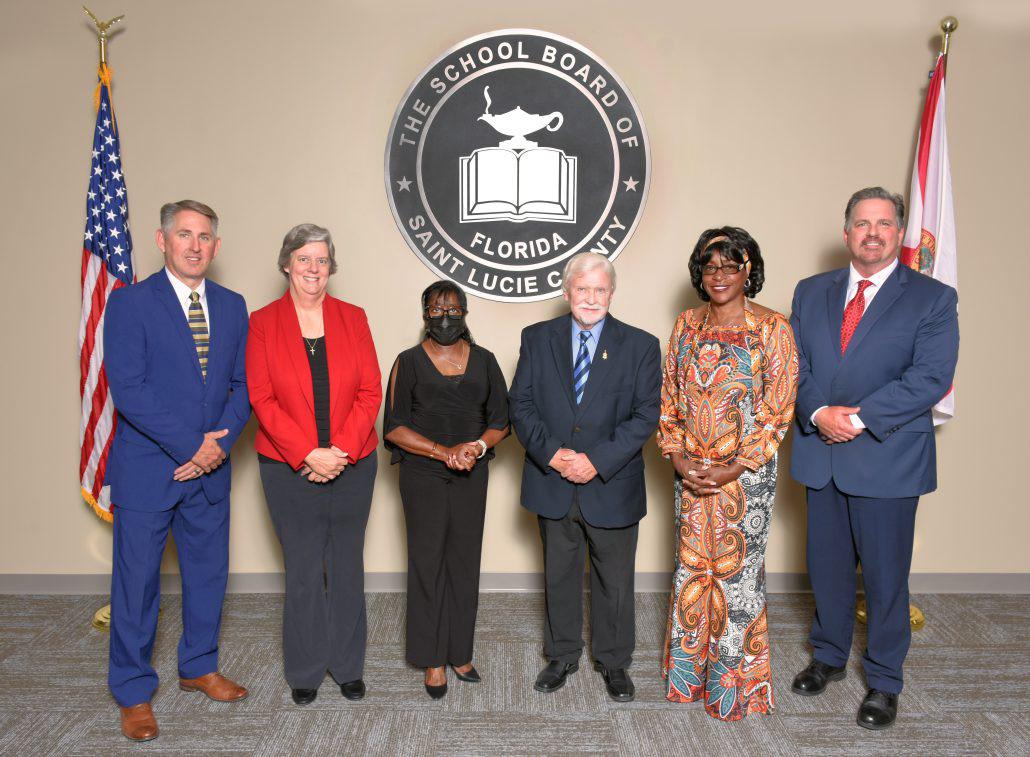

You Can’t Fix Stupid!
Seems... Birds of a Feather All Flock Together.

The City of Fort Pierce found itself once again embroiled in controversy following the hiring of a new Human Resources Director, Jared Sorenson. Sorenson admits to slamming his wife in the head with a hairdryer during an argument. His own son had to hold him down until the police arrived. He pleaded no contest to the charges and was sentenced to 40 hours of community service and a year of probation. Despite this troubling history, he was still appointed to a position of significant responsibility within the city administration. The City of Fort Pierce announced that Sorenson was the new Human Resource Manager for the City. His past came to light thanks to community activist, Rick Reed, owner of Sweeties Diner. After Rick became aware that the City of Fort Pierce hired this individual, he notified Fort Pierce City Manager, Nick Mimms. The City Manager, who is the Appointing Authority under the City Charter, told
Rick that he was not aware of the individual’s criminal history. He further stated that he would take the appropriate corrective action immediately. This unfortunate incident serves as a stark reminder of the critical importance of conducting thorough background checks in the hiring process, particularly for positions of trust and authority. Background checks are not merely a formality; they are an essential tool for safeguarding the integrity and reputation of organizations, as well as the safety and well-being of employees and the public they serve.
It is inconceivable that the City of Fort Pierce could or would allow this to happen. It begs the question, is this a regular occurrence when the City of Fort Pierce hires new employees. One of the primary purposes of background checks is to uncover any past criminal behavior or instances of misconduct that may raise red flags
regarding an individual’s suitability for a particular role. In the case of Jared Sorenson, had a comprehensive background check been conducted prior to his appointment, his history of domestic violence would have undoubtedly been revealed. This information could have prompted further scrutiny and potentially led to a different hiring decision, sparing the City of Fort Pierce from the embarrassment and ethical quandary it now faces.
In addition to mitigating potential risks and liabilities, conducting background checks demonstrates a commitment to due diligence and responsible hiring practices. It sends a clear message that organizations prioritize transparency, accountability, and the safety of their stakeholders. Moreover, it helps foster a culture of trust and confidence among employees, knowing that their employer takes proactive measures to vet prospective colleagues and maintain high standards of integrity.
The case of Jared Sorenson underscores the far-reaching consequences of overlooking background checks in the recruitment process. By neglecting to thoroughly assess his background and criminal history, the City of Fort Pierce not only compromised its own credibility but also jeopardized the safety and trust of its employees and constituents.
St. Lucie County School Board and the Superintendent Receives a Lesson in Free Speech
Censorship:
because nothing says ‘I’m scared of ideas’ like trying to shut them down...
In a democratic society, the right to free speech is not just a privilege but a cornerstone of civic engagement and accountability. Yet, recent developments within the St. Lucie County School Board have sparked concern among citizens and advocates for civil liberties. The board proposed changes to public comment regulations, aiming to restrict the time allotted for citizens to address their elected representatives during board meetings. This move has ignited a fierce debate over the balance between administrative efficiency and the fundamental right to free expression.
Currently, individuals scheduled to speak at board meetings are granted five minutes, while unscheduled speakers are limited to three minutes. However, the proposed changes would reduce the time limit to a uniform three minutes for all speakers.
Additionally, in situations where more than ten people wish to speak, the allotted time would be further diminished to two minutes per speaker. If the number of speakers exceeds twenty, each individual would be granted only one minute to voice their concerns or opinions. School Board Member, Jennifer Richardson attended the monthly meeting of the St. Lucie County Concerned Citizens to brief the Concerned Citizens of the impending changes requested by Dr. Prince, Saint Lucie County Schools Superintendent. St. Lucie County School Board Member Richardson requested that the Officers and Members attend the next meeting and raise objections against the limitations proposed by the Superintendent.
Critics of the proposed changes argue that such limitations would severely curtail the ability of citizens to fully articulate their thoughts and concerns before the board. Charlie Frank Matthews, president of St. Lucie Concerned Citizens, strongly expressed the sentiment of many when he addressed the board, asserting, “We are saying to you, the citizens, taxpayers, and the parents, all have a right, don’t cut that 1st amendment right.”
Matthews’ words underscore the importance of protecting the constitutional right to free speech, particularly in forums designed for public participation and
accountability. Rick Reed, vice president of St. Lucie Concerned Citizens, echoed these sentiments, questioning the rationale behind stifling public discourse. “Why would you want to limit the ability for parents and the members of St. Lucie County to address you all and make it hard?” Reed implored the board, emphasizing the essential role of public input in democratic governance. He also reminded the board that “even bad speech is free speech,” highlighting the principle that the exchange of diverse viewpoints,
Contined on Page 4

Let Freedom Ring
Contined from Page 3
however contentious, is fundamental to a vibrant democracy.
During the March 12 meeting, Board Member Richardson was joined in opposition by Donna Mills who staunchly opposed the proposed changes, emphasizing the board’s duty to uphold the rights of the constituents they serve.
“The purpose of this board is to encourage citizens to bring their thoughts and concerns about the educational system to the attention of this body,” Mills affirmed. She further asserted, “We were voted and chosen to be board members and to stand up for the people’s rights, and I myself will not stand for this.” Mills proposed tabling the matter for further discussion, advocating for a more deliberative approach that respects the voices of the community.
Jennifer Richardson reminded her colleagues of their role as public servants entrusted with the responsibility of representing the interests of the community.
“We seem to forget that we are on this board as public servants,”

Richardson remarked, urging her fellow board members to consider the broader implications of limiting public participation. Ultimately, the proposed changes to public comment regulations were met with significant opposition from both board members and concerned citizens. Jack Kelly withdrew his second on the motion, and Troy Ingersoll withdrew his motion to pass the changes, effectively halting the implementation of the proposed restrictions. As the board continues to deliberate on the
matter, it is evident that the protection of free speech and the promotion of democratic values remain paramount in the discourse surrounding public participation in governance.

When Does It End?




